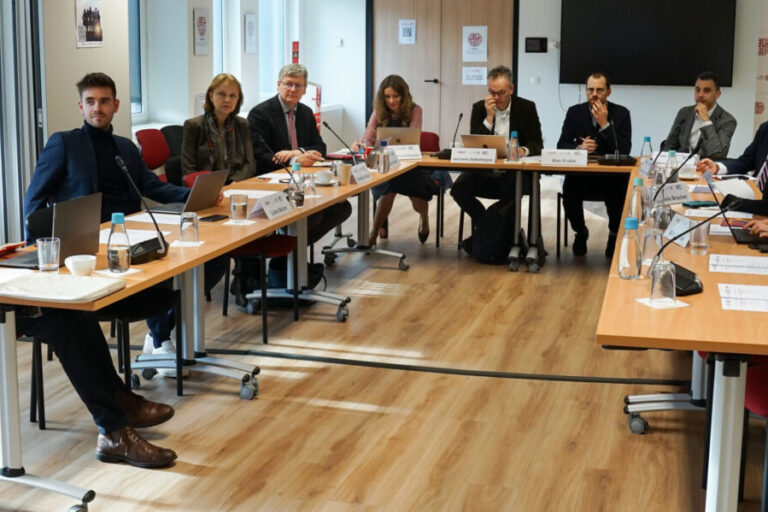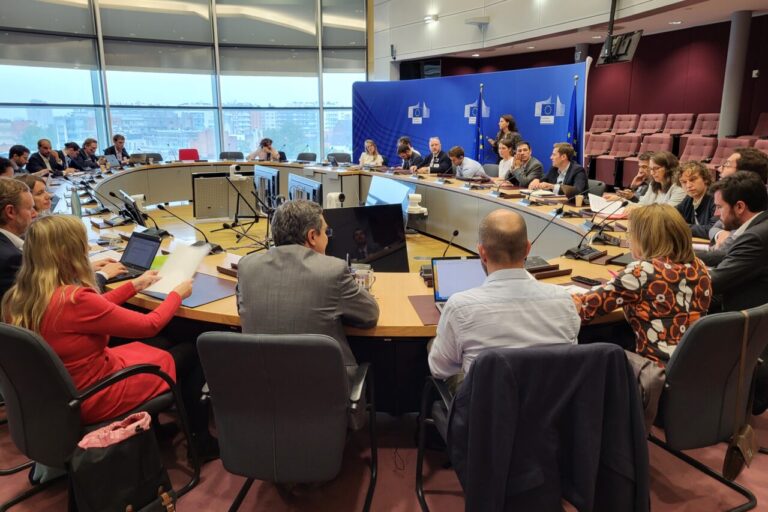The next European Parliament and Commission will have to face challenges that are already causing a headache today. First, the rule of law crisis. For at least a decade, the EU has been struggling to overcome democratic backsliding in Hungary and Poland. These processes are not only domestic affairs of the member states in question. Since the EU is a legal union, and the EU law is superior to national regulations, any erosion of the rule of law in a member state is automatically a threat to the integration and proper functioning of the EU. In the past, both the Hungarian and Polish governments took the dispute over the rule of law to the next level, questioning, ignoring, or even ruling against EU sanctions and punishments, which raises a technical question about their further membership in the EU.
Second, the next enlargement round. There are a number of countries in the waiting room, patiently anticipating their integration and ultimately their accession to the EU. The Russian war of aggression against Ukraine has once again emphasised with great force that there exist only two options on the European continent: either further integration with the West, or being swept into Putin’s sphere of influence. Whereas some countries, like Serbia, openly flirt with the Russian dictator, others consequently follow the requirements to join the European Union, undergoing sometimes painful reforms for the sake of the greater good. Moldova, Macedonia, Albania and indeed Ukraine are prime examples of such endeavors. They have to be rewarded in a foreseeable future. The last EU summit in mid-December gave a few countries new hope. 2030 as the next enlargement deadline must be kept a realistic promise.
Third, there is a number of conflicting interests in the EU27 that are affecting important policy decisions. A prolonged decision-making paralysis could determine the future of our continent for decades. For example, in the case of migration and asylum policy, countries facing direct migration pressure like Italy and Greece cannot seem to find solidarity in member states who do not want to agree to relocation quotas and other measures of sharing the burden of irregular migration to Europe. Climate and energy policy is another polarizing issue, touching upon the existential security of each and every country. The Russian war with Ukraine showed how vulnerable Europe and some major member states like Germany were with regards to their energy supplies. The ongoing climate crisis calls for ending dependence on fossil fuels, which cannot happen overnight, yet does not offer clear answers what will be the next era energy mix for Europe. The polarization and politicization of the topic delay a merit-based debate on immediate costs the societies will have to bear in order to see the benefits of energy transition delayed in the future. Last but not least, we have just witnessed the attempt to obstruct the efforts to further support Ukraine resisting Russian imperialism. The position of Viktor Orbán, an official ally of Putin, threatens the security of Europe. Sending a compromised leader to get a coffee while pivotal decisions are about to be made cannot become a standard way of securing effective decision-making in the EU.
The evidence mentioned above showcases the need for the EU to evolve. To be a fit political union, able to react quickly to external events as well as effectively reconcile contradictory interest internally, it needs to undergo institutional reforms. Here, ideas such as scrapping the veto right in the EU council, allowing more qualified majority voting, and introducing broader budgetary conditionality to uphold the rule of law are most viable ideas. The EU also needs more democratic legitimacy and engagement of EU citizens, a goal that could be achieved by europeanising EP elections, with transnational electoral lists, Spitzenkandidaten for Commission President, and harmonizing election laws for this special ballot.
Finally, a more defensive approach towards eroding EU standards and political sabotage must be introduced. The ongoing clash with Hungary and Poland in the past has proven that developing sanctions and corrective mechanisms on the go is not sufficient to defend the Union’s ability to act. The EU must be ready to mitigate and prevent crises before they spiral out of control – especially in light of of rising popularity of anti-democratic, Eurosceptic forces and an expansion to 30+ countries. The EU must become better equipped to not only deal with today’s challenges and external crises, but also remain a functional intergovernmental body that isn’t stumbling over its own legs.





